Pharmacogenomic Risk Calculator
How Your Genes Affect Medication Response
This tool demonstrates how genetic factors can affect drug metabolism based on population data from the article. It does not provide medical advice or personal health recommendations.
Risk Assessment
Have you ever taken the same medication as someone else - maybe a friend or family member - and had completely different results? One person feels fine, while another ends up in the hospital. It’s not just bad luck. It’s biology. Medications don’t work the same way for everyone. And the reasons why are more complex - and more personal - than most doctors even realize.
Genes Are the Hidden Switches
Your genes control how your body handles drugs. It’s not just about what the pill does - it’s about what your body does to the pill. The liver uses enzymes like CYP2D6 and CYP2C19 to break down medications. But not everyone has the same versions of these enzymes. Some people are poor metabolizers, meaning their bodies process drugs too slowly. Others are ultra-rapid metabolizers, burning through drugs before they can do their job. For example, about 5% to 10% of people of European descent have a CYP2D6 variant that makes them poor metabolizers. If they take codeine - a drug meant to be turned into morphine by this enzyme - they get almost no pain relief. Meanwhile, ultra-rapid metabolizers, common in Ethiopian and Arab populations, turn codeine into morphine too fast. That can lead to dangerous breathing problems, even at normal doses. The same thing happens with clopidogrel, a blood thinner. About 2% to 15% of people carry a genetic variant that stops clopidogrel from working at all. These patients are at high risk for heart attacks or strokes - but doctors won’t know unless they test for it. Most still prescribe it blindly.Age, Body Type, and How Your Body Holds Onto Drugs
It’s not just genes. Your body changes as you age. Older adults carry more body fat and less water. Fat-soluble drugs like diazepam or amitriptyline stick around longer. That means a dose that’s fine for a 30-year-old can build up to toxic levels in a 70-year-old. Kidney and liver function also decline with age. These organs clear drugs from your system. When they slow down, even small doses can become dangerous. That’s why older adults make up over half of all hospital admissions due to adverse drug reactions. Even your weight matters. A person with a higher body mass index may need a different dose of antibiotics or antidepressants. But most prescriptions still use a one-size-fits-all formula based on average body weight from decades ago.What You’re Eating, Drinking, and Taking Alongside
Drugs don’t live in isolation. They interact with everything else in your body. Grapefruit juice, for instance, blocks an enzyme that breaks down statins. One glass can make your cholesterol drug stick around too long - raising your risk of muscle damage. It’s not just grapefruit. Antibiotics like erythromycin, antifungals, and even some herbal supplements can interfere. Inflammation from an infection or chronic illness can shut down liver enzymes by 20% to 50%. That means your body can’t clear drugs the way it normally would. A dose that was safe last week might become toxic today if you’ve got the flu. And then there’s polypharmacy - taking five or more medications at once. This is common in older adults. Each new drug adds another layer of risk. One drug might slow down how another is broken down. Another might compete for the same enzyme. The result? Unpredictable, sometimes deadly, interactions. Studies show people on five or more drugs are three times more likely to have a serious side effect than younger patients.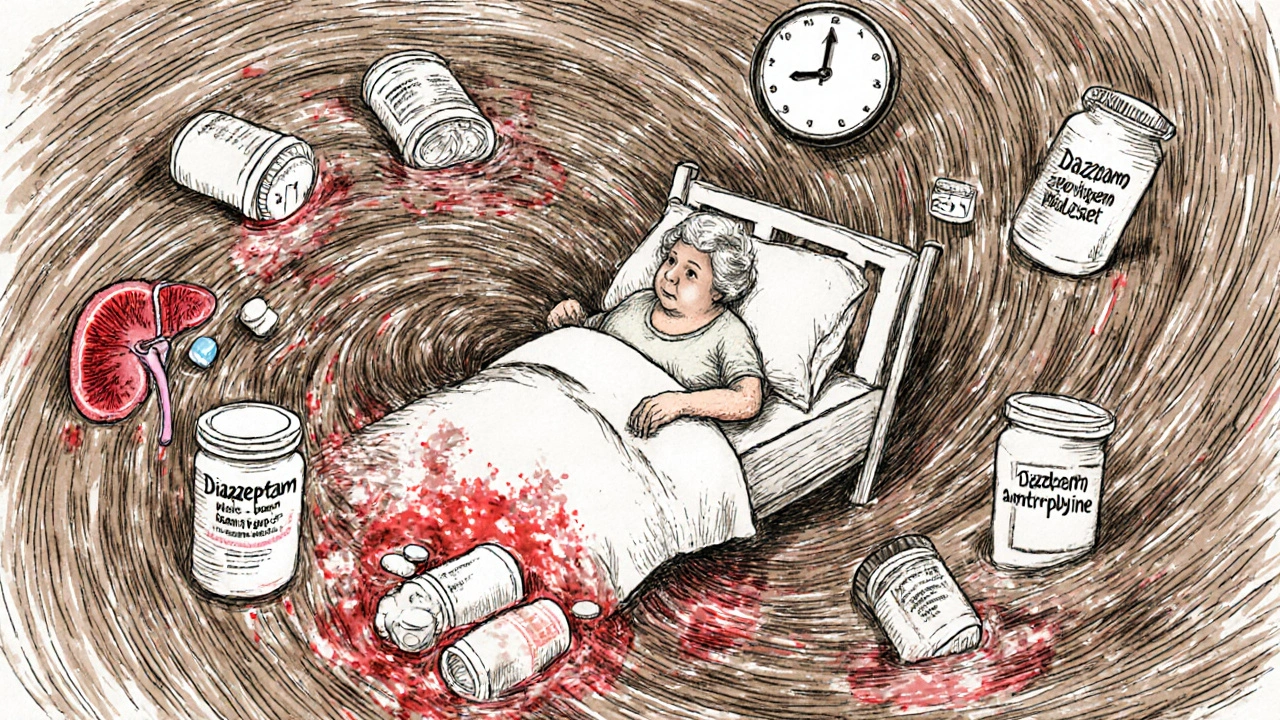
Pharmacogenomics: The Future Is Already Here
There’s a growing field called pharmacogenomics - using your genes to guide your prescriptions. The FDA has included genetic guidance on over 300 drug labels. For 44 of them, they give specific dosing advice based on genetics. Take warfarin, a blood thinner. Dosing used to be a guessing game. Too little, and you clot. Too much, and you bleed. But CYP2C9 and VKORC1 gene variants explain 30% to 50% of why people need different doses. In clinical trials, patients who got genetically guided dosing reached safe levels faster - and had 31% fewer major bleeds. In pediatric cancer, St. Jude Children’s Research Hospital started testing kids for TPMT gene variants before giving mercaptopurine. Before testing, 25% of kids had severe toxicity. After, it dropped to 12%. That’s not just a number - it’s fewer hospital stays, fewer infections, fewer scared parents.Why Isn’t Everyone Getting Tested?
If it works so well, why aren’t we doing it routinely? Cost used to be a barrier. A full genetic panel cost $2,000 in 2015. Now it’s under $250. That’s cheaper than a single specialist visit. The real problem is access and knowledge. Only 18% of U.S. insurers cover pharmacogenomic testing. Most doctors haven’t been trained to read the reports. A 2023 survey found 68% of physicians feel unprepared to use genetic data. Hospitals often don’t have the software to alert them when a patient’s genes conflict with a prescribed drug. And it’s not just about CYP2D6 or CYP2C19. Those three enzymes explain only 15% to 19% of side effects. There are thousands of other genes involved. Right now, most tests look at just a handful. That’s like trying to fix a car by checking only the fuel tank and ignoring the brakes, spark plugs, and transmission.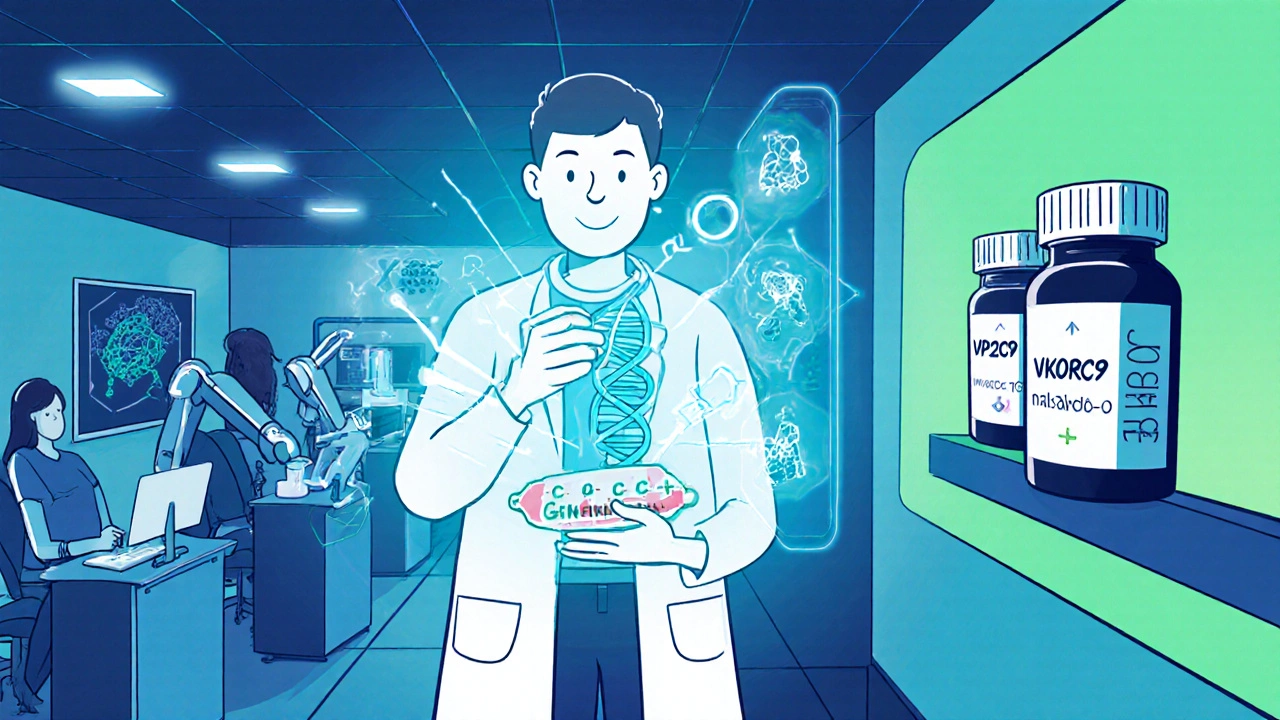
Real Cases, Real Consequences
A 68-year-old woman in a JAMA case study kept having dangerous bleeding episodes on warfarin. Her INR kept spiking above 10 - life-threatening. Her doctors kept adjusting the dose, but nothing worked. Then she got genetic testing. She had two copies of the CYP2C9*3 variant - a rare but known poor metabolizer. Her dose was cut by 60%. Her INR stabilized. She left the hospital. In asthma, 15% of severe cases involve a variant in the LTC4 synthase gene. These patients respond dramatically better to leukotriene modifiers like zafirlukast - improving lung function by 45%. But if you don’t test, you give them the $300-a-month drug anyway. And for the other 85%? It does almost nothing. Billions are spent every year on drugs that don’t work for most people.What You Can Do Today
You don’t need to wait for your doctor to order a test. Here’s what you can do now:- If you’ve had a bad reaction to a drug - even a mild one - write it down. Note the name, dose, and symptoms.
- Ask your doctor: “Could my genes affect how I respond to this medication?”
- Check if your medication has a pharmacogenomic label on the FDA website or in the patient leaflet.
- If you’re on five or more drugs, ask for a medication review with a pharmacist.
- Don’t ignore interactions. Grapefruit juice with statins? Stop it. St. John’s wort with antidepressants? Dangerous.
The Bigger Picture
The goal isn’t to stop taking medicine. It’s to make sure the right medicine is given the right way - to the right person. Right now, we’re treating populations, not people. We’re guessing. And people are getting hurt. The data is clear. Genetic testing reduces hospitalizations. It saves money. It saves lives. But change moves slowly. The system isn’t built for personalization. Insurance won’t pay. Doctors aren’t trained. Labs aren’t connected. Still, progress is happening. Medicare now covers pharmacogenomic testing for 17 high-risk drugs starting January 2024. The EU now requires genetic data in all new drug trials. Academic centers are building programs. Costs keep falling. The future of medicine isn’t about more drugs. It’s about smarter ones. Ones that work for you - not just for the average person.Why do some people have side effects and others don’t on the same drug?
It’s mostly due to genetic differences in how the body processes drugs - especially enzymes like CYP2D6 and CYP2C19. Age, body fat, liver and kidney function, other medications, and even infections can change how a drug behaves in your system. What’s safe for one person can be dangerous for another.
Is pharmacogenomic testing worth it?
For certain drugs - like warfarin, clopidogrel, certain antidepressants, and chemotherapy agents - yes. Testing can prevent serious side effects, reduce hospital visits, and help find the right dose faster. For people on multiple medications or with a history of bad reactions, it’s one of the most practical steps you can take.
Can I get tested without a doctor’s order?
Some direct-to-consumer companies offer pharmacogenomic panels, but results may not be clinically validated or interpreted correctly. The best approach is to work with a doctor or pharmacist who can order a clinically approved test and help you understand what the results mean for your treatment.
Are genetic test results permanent?
Yes. Your genes don’t change. Once you know your metabolic profile - whether you’re a poor or rapid metabolizer - that information applies for life. It can guide decisions for any future medication, not just one.
Why aren’t all doctors using genetic testing?
Most haven’t been trained to use it. Insurance often doesn’t cover it. Electronic health records rarely alert doctors when a patient’s genes conflict with a prescription. And many still believe it’s too new or too complicated. But adoption is growing - especially in oncology, psychiatry, and cardiology.

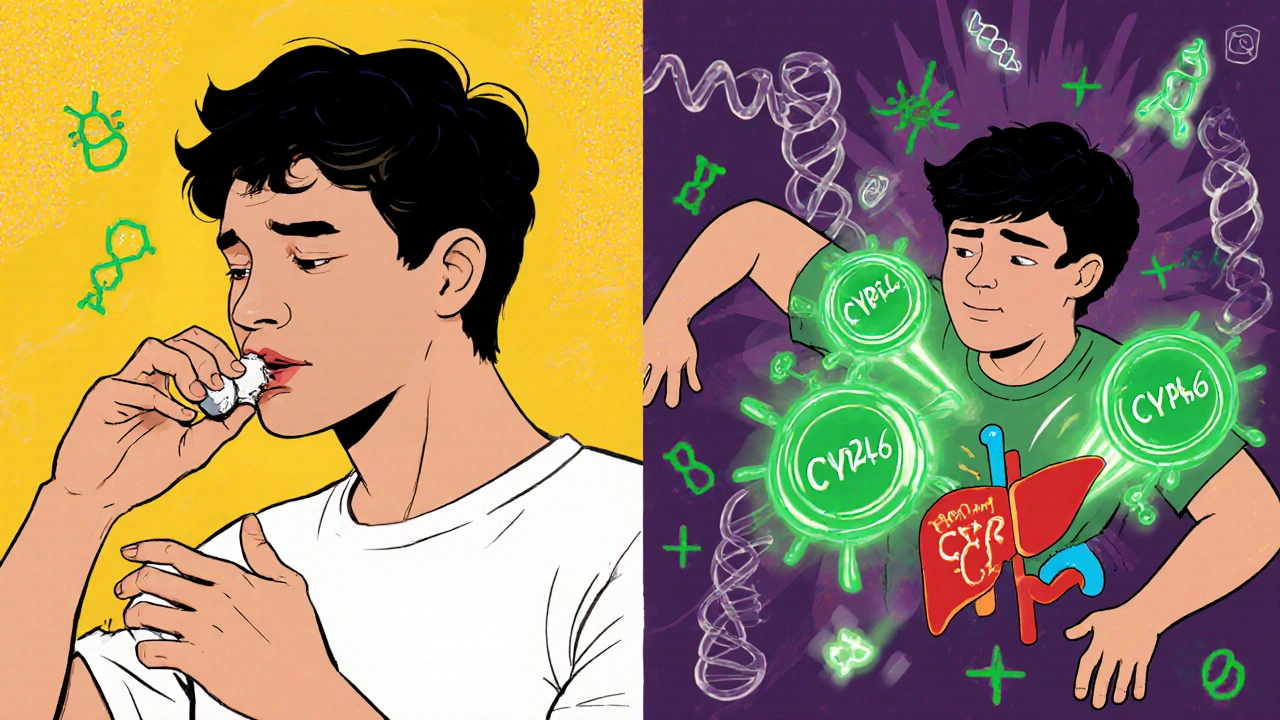
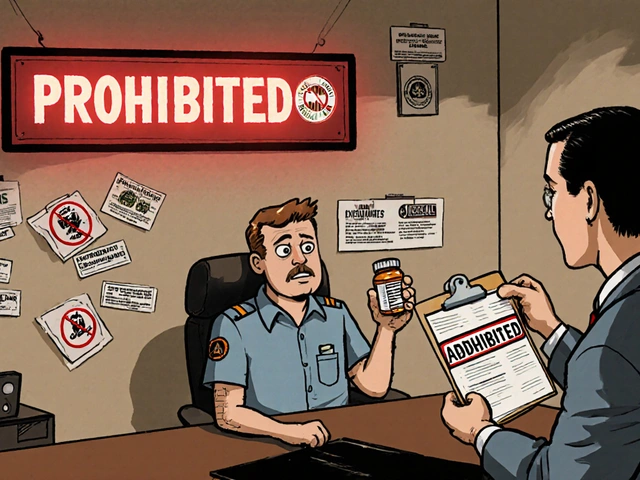
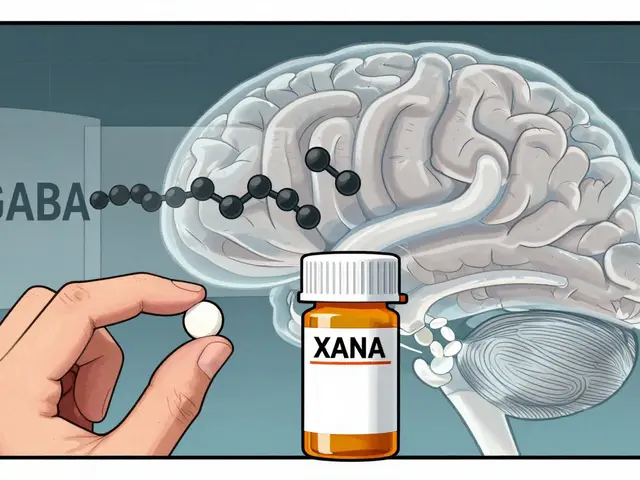
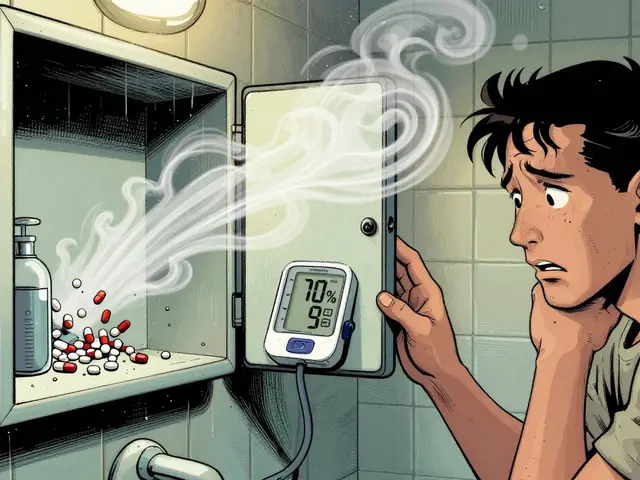
Sonia Festa
Bro, I took that codeine for a back spasm and ended up feeling like I was being smothered by a pillow. Turns out I’m one of those ultra-rapid metabolizers. My doctor acted like I was lying until I showed him the article. Now he tests everyone. Why didn’t he know this before? We’re still playing Russian roulette with prescriptions.
John Rendek
This is exactly why we need standardized genetic screening before prescribing. It’s not magic-it’s biology. We test for blood type before transfusions. Why not test for drug metabolism before giving someone a pill that could kill them? The cost is nothing compared to an ICU stay.
Ryan Tanner
My grandma was on warfarin for years and kept bleeding out. Then they did the test-turns out she had the CYP2C9*3 variant. Dose dropped by half, and she’s been fine for 3 years now. Seriously, if you’re on more than 3 meds, ask for this. It’s life-changing.
Emily Barfield
Think about it: we’ve spent centuries treating humans as if we were all the same machine-with identical parts, identical tolerances, identical responses. But we’re not. We’re a mosaic of genetic quirks, metabolic idiosyncrasies, and environmental noise. The idea that one dose fits all is as outdated as bloodletting. The real tragedy isn’t that we don’t know-we know. The tragedy is that we refuse to act. We’ve got the tools. We’ve got the data. We just don’t have the courage to abandon the illusion of uniformity.
Sara Allen
They're hiding this from us on purpose. Big Pharma doesn't want you to know your genes can make their drugs useless or deadly. If everyone got tested, they'd lose billions. That's why doctors don't talk about it. It's not science-it's profit. And they'll let you die before they admit it.
Amina Kmiha
Also, did you know the FDA is being controlled by the Illuminati? 🤫 They only approve genetic tests that benefit the shadow government. Grapefruit juice? That’s a distraction. Real answer: the government doesn’t want you to be healthy. They need you sick so they can sell you more pills. And your phone is listening to your heartbeat. 📱💀
Jessica Adelle
It is both lamentable and unconscionable that our medical infrastructure continues to operate under archaic paradigms, despite overwhelming empirical evidence supporting pharmacogenomic integration. The ethical implications of administering untested pharmaceuticals to a genetically heterogeneous population are not merely negligent-they constitute a systemic violation of the Hippocratic Oath.
Albert Schueller
Wait-so you’re telling me that my body breaks down meds differently than my cousin’s? That’s crazy. My cousin took the same antidepressant and felt great. I got suicidal. I thought it was me. Turns out I’m a slow metabolizer. But my doc said ‘try another pill.’ No one ever said ‘maybe your genes are the problem.’ How many people are dying because no one’s asking?
Sai Ahmed
They’re not testing you because they don’t want you to know. The whole system is rigged. Your DNA data gets sold to insurance companies. They’ll raise your rates if you’re a ‘high-risk metabolizer.’ And don’t get me started on how the CDC tracks this stuff. You think this is about health? It’s about control.